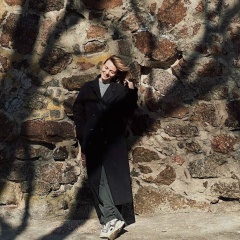Мое видение результатов выборов в Госдуму VI созыва или отсутствие объясняется отсутствием
На прошедших выборах, несмотря на впечатляющие результаты, показанные как партией власти, так и оппозиционными партиями, не выиграла ни одна из партий.
В целом, нынешние выборы прошли под лозунгом: «За кого угодно, только не за Единую Россию!» Именно это обстоятельство и обусловило серьезный успех оппозиции.
Единая Россия с результатом ниже 50 % (а точнее 49.47 %) – это серьезный шаг назад, из которого руководству партии следует сделать соответствующие оргвыводы.
Впечатляющие результаты КПРФ (19,16 % против 11,57 %) Справедливой России (13,22 % против 7,74 %) и ЛДПР (11,66 % против 8,14 %) базируются лишь на антагонизме большинства населения к ЕР, отсутствию в избирательных бюллетенях графы «Против всех», отсутствию серьезной внесистемной оппозиции, а также харизматических лидеров внутри существующей оппозиции.
Самым большим провалом этой компании можно считать непрохождение партией Яблоко 7 и даже 5 % барьера (хотя нынешние 3.35 % вместо 1,6 % на выборах 2007 года – это тоже весьма впечатляющий результат). Во многом это обусловлено отсутствием у этой партии внятной PR-компании, а также несколько устаревшими установками, активно использовавшимися ее представителями во время предвыборных дебатов (из серии «Америка нам поможет!»).
То же можно сказать и о Правом деле, но здесь больше идет речь об общей девальвации правых идей среди населения, кредит доверия к которым был исчерпан еще в конце 1990-х. Уход Прохорова с позиций лидера партии также подлил масла в огонь – не случись этого, партия набрала бы лишних 2-3 %, и возможно даже с треском прошла бы в Думу.
Кроме того, следует отметить в целом невысокую явку избирателей по стране (пусть она и незначительно больше, чем на выборах-2007). Если бы явка перешла отметку в 70 % или даже приблизилась к 80 % (т.е. на избирательные участки пришло бы подавляющее большинство имеющих право голоса), результаты голосования могли бы быть совершенно иными. Такое «голосование ногами» во многом объясняется теми же причинами, что и неожиданный успех оппозиционных парламентских партий.
При имеющемся раскладе дума должна стать коалиционной и главная интрига состоит в том, какие партии составят коалицию с ЕР. Чисто оппозиционная коалиция маловероятна.
Существенно улучшить имидж оппозиционных партий сможет смена руководства в партиях, вплоть до смены партийных лидеров (особенно это касается политических тяжеловесов Зюганова и Жириновского). Если это произойдет, то партии парламентской оппозиции смогут оттянуть на себя на следующих выборах некоторую долю голосов, хотя бы потому, что при новом руководстве они будут восприниматься электоратом в новинку. В связи с этим, логичнее всего было бы сменить руководство и руководителей ближе к окончанию работы Думы нынешнего созыва, чтобы не дискредитировать как современный, так и возможный новый управляющий состав.
На прошедших выборах, несмотря на впечатляющие результаты, показанные как партией власти, так и оппозиционными партиями, не выиграла ни одна из партий.
В целом, нынешние выборы прошли под лозунгом: «За кого угодно, только не за Единую Россию!» Именно это обстоятельство и обусловило серьезный успех оппозиции.
Единая Россия с результатом ниже 50 % (а точнее 49.47 %) – это серьезный шаг назад, из которого руководству партии следует сделать соответствующие оргвыводы.
Впечатляющие результаты КПРФ (19,16 % против 11,57 %) Справедливой России (13,22 % против 7,74 %) и ЛДПР (11,66 % против 8,14 %) базируются лишь на антагонизме большинства населения к ЕР, отсутствию в избирательных бюллетенях графы «Против всех», отсутствию серьезной внесистемной оппозиции, а также харизматических лидеров внутри существующей оппозиции.
Самым большим провалом этой компании можно считать непрохождение партией Яблоко 7 и даже 5 % барьера (хотя нынешние 3.35 % вместо 1,6 % на выборах 2007 года – это тоже весьма впечатляющий результат). Во многом это обусловлено отсутствием у этой партии внятной PR-компании, а также несколько устаревшими установками, активно использовавшимися ее представителями во время предвыборных дебатов (из серии «Америка нам поможет!»).
То же можно сказать и о Правом деле, но здесь больше идет речь об общей девальвации правых идей среди населения, кредит доверия к которым был исчерпан еще в конце 1990-х. Уход Прохорова с позиций лидера партии также подлил масла в огонь – не случись этого, партия набрала бы лишних 2-3 %, и возможно даже с треском прошла бы в Думу.
Кроме того, следует отметить в целом невысокую явку избирателей по стране (пусть она и незначительно больше, чем на выборах-2007). Если бы явка перешла отметку в 70 % или даже приблизилась к 80 % (т.е. на избирательные участки пришло бы подавляющее большинство имеющих право голоса), результаты голосования могли бы быть совершенно иными. Такое «голосование ногами» во многом объясняется теми же причинами, что и неожиданный успех оппозиционных парламентских партий.
При имеющемся раскладе дума должна стать коалиционной и главная интрига состоит в том, какие партии составят коалицию с ЕР. Чисто оппозиционная коалиция маловероятна.
Существенно улучшить имидж оппозиционных партий сможет смена руководства в партиях, вплоть до смены партийных лидеров (особенно это касается политических тяжеловесов Зюганова и Жириновского). Если это произойдет, то партии парламентской оппозиции смогут оттянуть на себя на следующих выборах некоторую долю голосов, хотя бы потому, что при новом руководстве они будут восприниматься электоратом в новинку. В связи с этим, логичнее всего было бы сменить руководство и руководителей ближе к окончанию работы Думы нынешнего созыва, чтобы не дискредитировать как современный, так и возможный новый управляющий состав.
My vision of the results of elections to the State Duma of the VI convocation or absence is explained by the lack of
In the last elections, despite the impressive results shown by both the ruling party and the opposition parties, none of the parties won.
In general, the current elections were held under the slogan: "For anyone, but not for United Russia!" It was this circumstance that led to the opposition's serious success.
United Russia with a result below 50% (or rather 49.47%) is a serious step backward, from which the party's leadership should make appropriate organizational conclusions.
The impressive results of the Communist Party of the Russian Federation (19.16% versus 11.57%) of Fair Russia (13.22% versus 7.74%) and the Liberal Democratic Party (11.66% versus 8.14%) are based only on the antagonism of the majority of the population towards the United Russia, the absence in the ballots the columns “Against all”, the absence of a serious non-systemic opposition, as well as charismatic leaders within the existing opposition.
The biggest failure of this company can be considered the failure of the Yabloko party 7 and even 5% of the barrier (although the current 3.35% instead of 1.6% in the 2007 elections is also a very impressive result). This is largely due to the lack of a clear PR-campaign for this party, as well as somewhat outdated attitudes that were actively used by its representatives during the election debates (from the series "America will help us!").
The same can be said about the Right Cause, but here we are talking more about the general devaluation of right-wing ideas among the population, the credit of trust in which was exhausted back in the late 1990s. Prokhorov's departure from the position of party leader also added fuel to the fire - had it not happened, the party would have gained an extra 2-3%, and perhaps even with a bang it would have gone to the Duma.
In addition, it should be noted the generally low voter turnout in the country (albeit slightly higher than in the 2007 elections). If the turnout crossed the 70% mark or even approached 80% (i.e. the overwhelming majority of those eligible to vote would come to the polling stations), the voting results could be completely different. This "voting with feet" is largely due to the same reasons as the unexpected success of opposition parliamentary parties.
In the current situation, the Duma should become a coalition and the main intrigue is which parties will form a coalition with United Russia. A purely opposition coalition is unlikely.
A change in leadership in parties, up to and including a change in party leaders (this is especially true of the political heavyweights Zyuganov and Zhirinovsky), can significantly improve the image of opposition parties. If this happens, then the parties of the parliamentary opposition will be able to draw off a certain share of the votes in the next elections, if only because under the new leadership they will be perceived by the electorate as a novelty. In this regard, it would be most logical to change the leadership and leaders closer to the end of the work of the Duma of the current convocation, so as not to discredit both the current and possible new management staff.
In the last elections, despite the impressive results shown by both the ruling party and the opposition parties, none of the parties won.
In general, the current elections were held under the slogan: "For anyone, but not for United Russia!" It was this circumstance that led to the opposition's serious success.
United Russia with a result below 50% (or rather 49.47%) is a serious step backward, from which the party's leadership should make appropriate organizational conclusions.
The impressive results of the Communist Party of the Russian Federation (19.16% versus 11.57%) of Fair Russia (13.22% versus 7.74%) and the Liberal Democratic Party (11.66% versus 8.14%) are based only on the antagonism of the majority of the population towards the United Russia, the absence in the ballots the columns “Against all”, the absence of a serious non-systemic opposition, as well as charismatic leaders within the existing opposition.
The biggest failure of this company can be considered the failure of the Yabloko party 7 and even 5% of the barrier (although the current 3.35% instead of 1.6% in the 2007 elections is also a very impressive result). This is largely due to the lack of a clear PR-campaign for this party, as well as somewhat outdated attitudes that were actively used by its representatives during the election debates (from the series "America will help us!").
The same can be said about the Right Cause, but here we are talking more about the general devaluation of right-wing ideas among the population, the credit of trust in which was exhausted back in the late 1990s. Prokhorov's departure from the position of party leader also added fuel to the fire - had it not happened, the party would have gained an extra 2-3%, and perhaps even with a bang it would have gone to the Duma.
In addition, it should be noted the generally low voter turnout in the country (albeit slightly higher than in the 2007 elections). If the turnout crossed the 70% mark or even approached 80% (i.e. the overwhelming majority of those eligible to vote would come to the polling stations), the voting results could be completely different. This "voting with feet" is largely due to the same reasons as the unexpected success of opposition parliamentary parties.
In the current situation, the Duma should become a coalition and the main intrigue is which parties will form a coalition with United Russia. A purely opposition coalition is unlikely.
A change in leadership in parties, up to and including a change in party leaders (this is especially true of the political heavyweights Zyuganov and Zhirinovsky), can significantly improve the image of opposition parties. If this happens, then the parties of the parliamentary opposition will be able to draw off a certain share of the votes in the next elections, if only because under the new leadership they will be perceived by the electorate as a novelty. In this regard, it would be most logical to change the leadership and leaders closer to the end of the work of the Duma of the current convocation, so as not to discredit both the current and possible new management staff.
У записи 2 лайков,
0 репостов.
0 репостов.
Эту запись оставил(а) на своей стене Алексей Ратников























